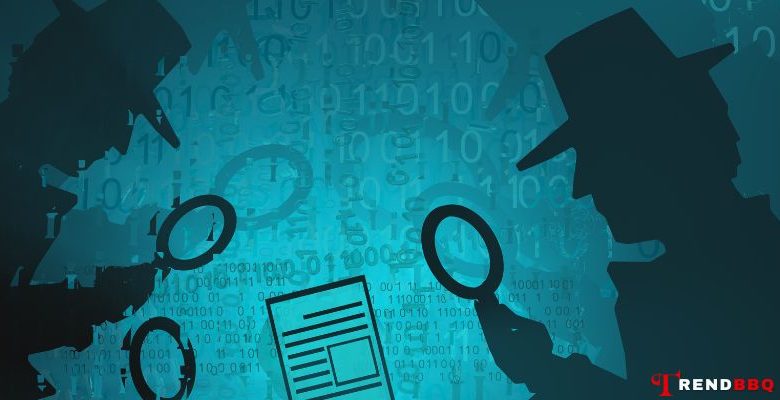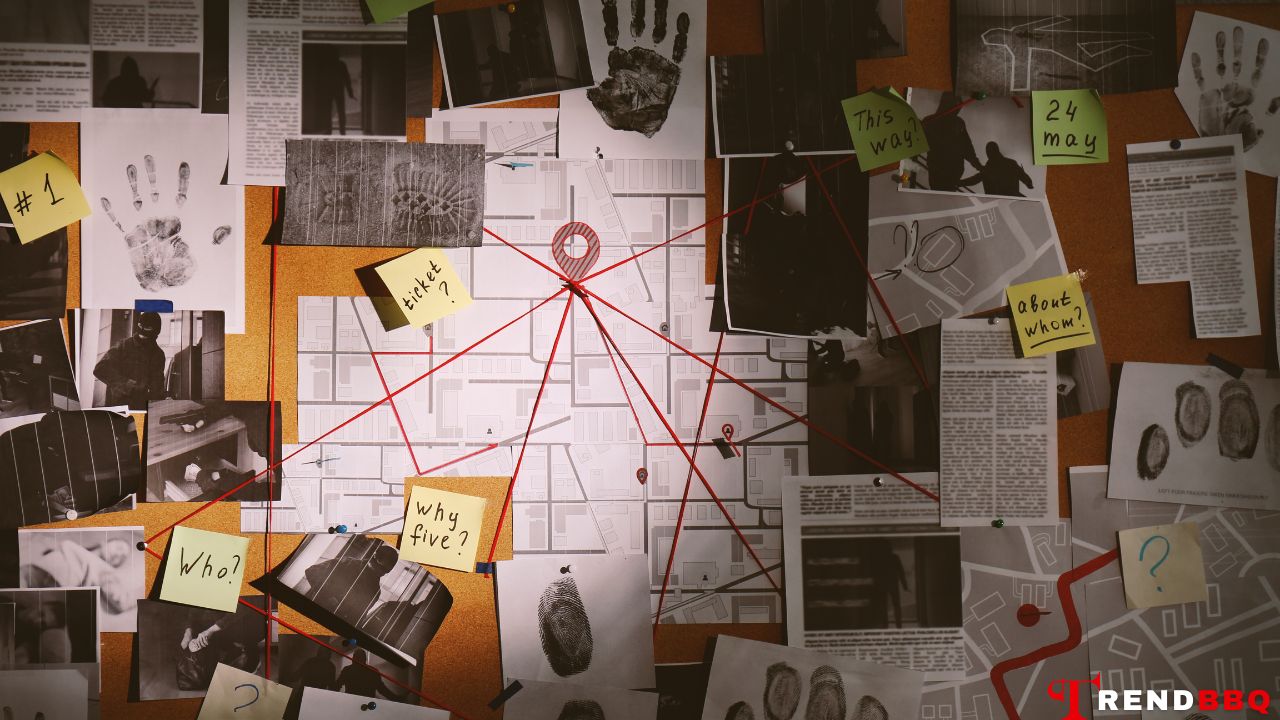
Becoming a detective is not easy, as it requires a lot of education, training, experience, and dedication. However, it can also be a rewarding and fulfilling career for those who have the passion and aptitude for it. In this article, Trendbbq will show you how to become a detective in two major routes: police detective and private detective. We will also answer some frequently asked questions about this career path.
1. How to Become a Detective – Police Detective
Becoming a police detective is a goal that requires dedication, experience, and a strong skill set. Here’s a step-by-step guide on how to become a police detective:
- Meet Educational Requirements: Obtain a high school diploma or GED. Some police departments may require a college degree, so consider pursuing an associate’s or bachelor’s degree in criminal justice, law enforcement, criminology, or a related field to enhance your qualifications.
- Gain Law Enforcement Experience: Before becoming a detective, you typically need to work as a uniformed police officer. Gain experience as a patrol officer to learn the basics of law enforcement, develop essential skills, and understand the workings of your department.
- Complete Police Academy Training: Attend a police academy to receive formal training and certification as a police officer. Police academies provide instruction in law, procedures, firearms training, physical fitness, and more.
- Gain Field Experience: Work as a patrol officer for several years to gain practical experience. This experience will help you develop problem-solving abilities, communication skills, and a deeper understanding of the community you serve.
- Pursue Specialized Training: While working as an officer, take advantage of any specialized training opportunities your department offers. This might include courses in investigations, evidence collection, forensic techniques, interview skills, and more.
- Obtain Promotions and Recognition: Stand out as a dedicated and capable officer by consistently performing well in your current role. Seek promotions to higher ranks within the police department to demonstrate your leadership and commitment.
- Understand Department Requirements: Research the specific requirements and qualifications to become a detective within your police department. These requirements can vary widely based on the department’s size, location, and policies.
- Apply for Detective Positions: When detective positions become available, submit an application according to your department’s process. This may involve submitting a resume, undergoing interviews, and possibly taking written or oral exams.
- Complete Additional Training: If selected for a detective role, you’ll likely undergo specialized training relevant to investigations. This training could cover topics such as crime scene analysis, interview techniques, evidence handling, and report writing.
- Demonstrate Strong Skills: As a detective, you’ll need excellent analytical, communication, and problem-solving skills. Display your ability to handle complex cases and work collaboratively with colleagues.
- Build a Strong Network: Network with experienced detectives and colleagues in your department. Learning from others’ experiences can help you grow as a detective and gain insights into successful investigative techniques.
- Stay Current and Adapt: Keep up with advancements in technology, law, and investigative methods. Adapt to changes in criminal trends and best practices to stay effective in your role.
- Uphold Professionalism and Ethics: Maintain a high standard of ethics and professionalism in your work. As a detective, your credibility and integrity are essential.
Becoming a police detective is a rewarding journey that requires a combination of education, experience, dedication, and continuous learning. It’s a role that involves making a meaningful impact on communities by solving crimes and delivering justice.

2. How to Become a Detective – Private Detective
Private investigators are skilled professionals who operate as independent detectives, serving the needs of private clients and organizations. Their tasks encompass a wide array of cases, ranging from personal issues like suspected infidelity, to intricate business concerns such as fraud detection, legal affairs such as due diligence, and insurance-related matters such as claims verification. Often, they collaborate with law firms and agencies, providing consultation and expertise in their areas of specialization. If the path of becoming a private investigator intrigues you, here is a comprehensive outline to guide your journey:
- Meet Prerequisite Qualifications: The initial step towards becoming a private investigator entails satisfying the stipulated prerequisites as per the regulations of your state or country. These prerequisites generally encompass meeting a minimum age requirement (typically 18 or 21 years old), possessing a clean criminal record, holding a high school diploma or higher education degree, and ideally, having relevant experience or educational background.
- Secure Licensure or Certification: To practice as a private investigator legally, many jurisdictions mandate the acquisition of a license or certification. Earning this credential might necessitate successfully passing an examination evaluating your understanding of legalities, ethical standards, and investigative methodologies. Additionally, you might be expected to remit a fee, provide fingerprints, and undergo a thorough background screening.
- Complete Comprehensive Training: In the pursuit of becoming a proficient private investigator, participation in training courses or programs offered by private institutions or associations is essential. These educational endeavors cover an array of critical topics such as surveillance techniques, effective research methodologies, the art of skilled interviewing, adept report writing, and specialization in various investigative domains.
- Embark on the Private Investigator Career Path: After successfully obtaining licensure, completing relevant training, and acquiring certification, you’re poised to embark on your journey as a private investigator. You can either affiliate yourself with an established investigative agency or opt to establish your own entrepreneurial venture. Responsibilities in this field encompass marketing your services, cultivating client relationships, negotiating contractual agreements, executing intricate investigations, and presenting comprehensive, well-documented reports.
The realm of private investigation offers an intriguing intersection of skills, ethics, and expertise, catering to a diverse array of clients and cases. This profession demands meticulous attention to detail, an astute analytical mind, and an unwavering commitment to truth-seeking. As you navigate this dynamic landscape, you’ll find yourself contributing significantly to uncovering facts and resolving matters that impact the lives of individuals and entities alike.

Becoming a detective is a challenging but rewarding career path for those who have an interest in law enforcement and investigation. Whether you want to become a police detective or a private detective, you will need to meet some requirements, complete some training, and gain some experience. By following the how to become a detective in this article, you can prepare yourself for your future as a detective. Good luck!
3. Frequently Asked Questions
What is a detective, and what do they do?
Detectives are law enforcement professionals who investigate crimes, gather evidence, interview witnesses, and work to solve cases. They play a crucial role in solving complex criminal investigations.
What educational background is required to become a detective?
Generally, a high school diploma or equivalent is the minimum requirement. However, many detectives have a bachelor’s degree in criminal justice, law enforcement, or a related field. Higher education can enhance your qualifications.
How do I start a career as a detective?
Most detectives start as uniformed police officers. You’ll need to join a police academy, complete training, and gain experience as a patrol officer before you become eligible for detective positions.
What skills are essential for a successful career as a detective?
Strong communication, critical thinking, problem-solving, attention to detail, and the ability to work under pressure are essential skills for detectives. Empathy and cultural awareness are also important when dealing with diverse communities.
Are there physical fitness requirements for becoming a detective?
While the physical fitness requirements may vary between agencies, generally, detectives should maintain a reasonable level of physical fitness to handle the demands of the job. Regular exercise is beneficial.



